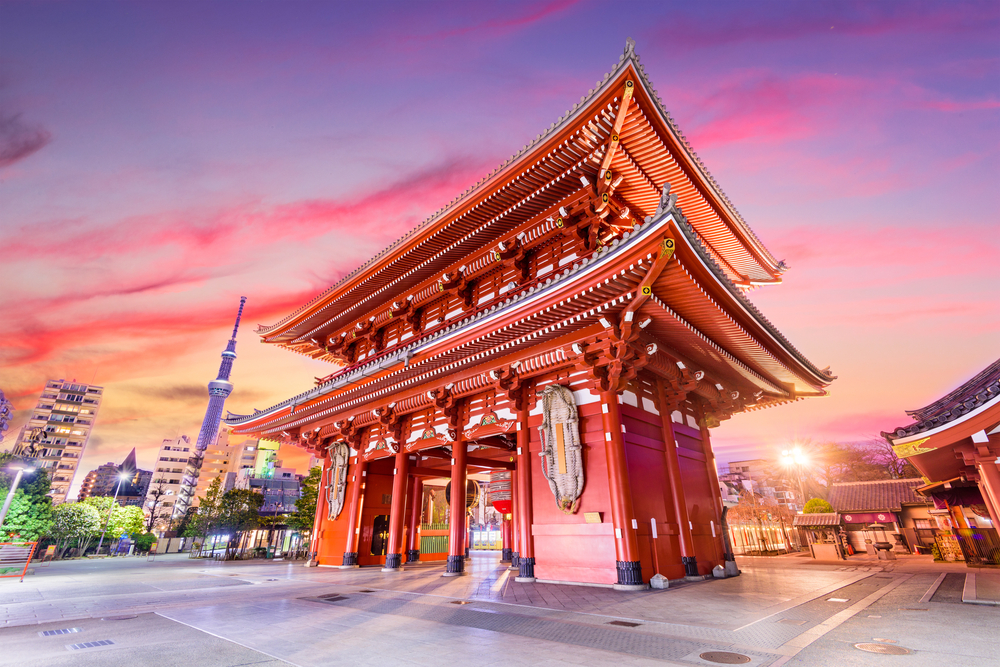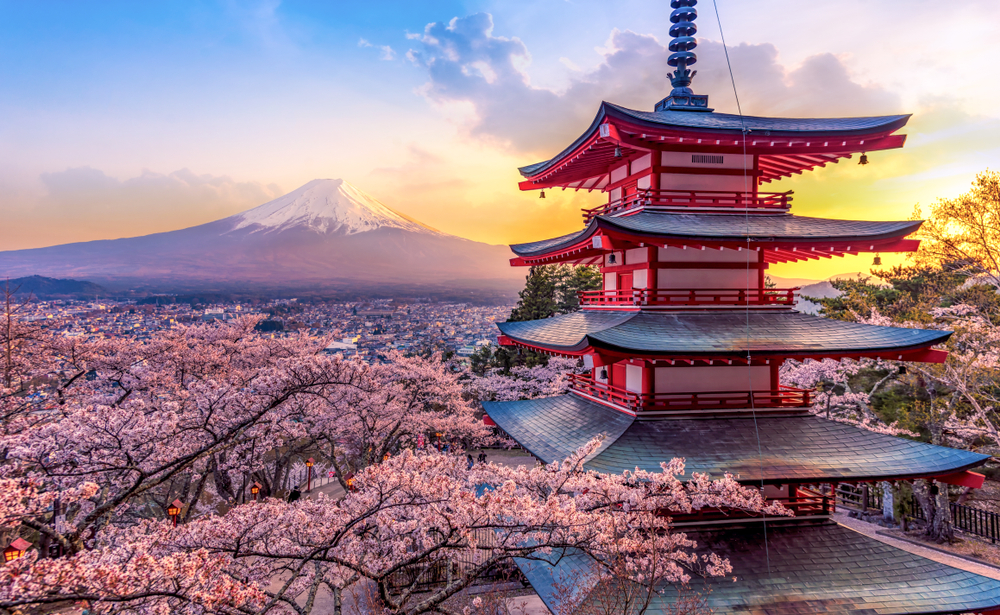How to Say Safe Travel in Japanese
How do you say safe travel in Japanese? Are you planning a trip to Japan soon and want to know how to say “safe travels” in Japanese? Knowing a few key phrases can make all the difference when traveling to a foreign country, especially if you’re not a native speaker of the language. In this article, we’ll explore the different ways to say “safe travels” in Japanese and provide you with some useful travel phrases to make your trip as smooth and stress-free as possible.
One way to say “safe travels” in Japanese is “anzen na tabi wo” (安全な旅を). This phrase can be used to wish someone a safe journey whether they’re traveling by train, taxi, or any other mode of transportation. It’s a polite and formal way to express your well wishes to someone before they embark on their journey.
Another phrase you can use to wish someone a safe trip in Japanese is “ki wo tsukete” (気をつけて). This phrase can be translated as “take care” or “be careful” and is commonly used in everyday conversation. You can use this phrase to wish someone a safe journey or to remind them to be cautious while traveling.
Understanding Basic Japanese Phrases

If you’re planning a trip to Japan, learning some basic Japanese phrases is important to help you navigate the country. Here are some essential phrases to get you started:
- Konnichiwa (こんにちは): This is a common Japanese greeting that means “hello” or “good day.” You can use it to greet people during the day.
- Ohayou Gozaimasu (おはようございます): This is a polite way to say “good morning” in Japanese. It’s a great way to greet people in the morning.
- Konbanwa (こんばんは): This means “good evening” in Japanese. You can use it to greet people in the evening.
- Arigatou Gozaimasu (ありがとうございます): This is a polite way to say “thank you” in Japanese. It’s important to show gratitude when interacting with locals.
- Sumimasen (すみません): This phrase means “excuse me” or “I’m sorry” in Japanese. You can use it to apologize or get someone’s attention.
- Doko (どこ): This means “where” in Japanese. It’s useful when you’re lost or trying to find a specific location.
- Toire (トイレ): This is the Japanese word for “toilet.” It’s important to know this word when you’re out and about in Japan.
- Ikura desu ka? (いくらですか?): This means “how much does it cost?” in Japanese. It’s useful when you’re shopping or dining out.
Learning a new language can be challenging, but there are resources available to help you. One such resource is HiNative, a language learning platform where you can ask native speakers questions and get your writing corrected by experts. Sign up today and start improving your Japanese language skills!
Useful Japanese Travel Phrases
When traveling to Japan, knowing a few basic Japanese phrases is always helpful to make your trip smoother and more enjoyable. Here are some useful Japanese travel phrases that you should know:
Greetings and Basic Japanese Phrases
- Konnichiwa (こんにちは) – Hello/Good day
- Arigatou gozaimasu (ありがとうございます) – Thank you very much
- Sumimasen (すみません) – Excuse me/I’m sorry
- Hai (はい) – Yes
- Iie (いいえ) – No
Transportation Phrases
- Doko made ikimasu ka? (どこまで行きますか?) – Where are you going?
- Eki wa doko desu ka? (駅はどこですか?) – Where is the train station?
- Takushii wa doko desu ka? (タクシーはどこですか?) – Where is the taxi?
- Kono basu wa (destination) ni ikimasu ka? (このバスは〇〇に行きますか?) – Does this bus go to (destination)?
Hotel Phrases
- Hoteru wa doko desu ka? (ホテルはどこですか?) – Where is the hotel?
- Heya wa ikura desu ka? (部屋はいくらですか?) – How much is the room?
- Toire wa doko desu ka? (トイレはどこですか?) – Where is the restroom?
- Te-rebi ga arimasu ka? (テレビがありますか?) – Is there a TV?
- Taoru wa arimasu ka? (タオルはありますか?) – Is there a towel?
Eating and Drinking in Japan
- Oishii desu (美味しいです) – It’s delicious
- Osusume wa nanidesu ka? (おすすめは何ですか?) – What do you recommend?
- Kudasai (ください) – Please give me
- Gochisousama deshita (ごちそうさまでした) – Thank you for the meal
Learning and using these basic Japanese travel phrases can make your trip to Japan more enjoyable and stress-free.
Saying Safe Travel in Japanese

If you are planning to travel to Japan or have a friend or family member who is traveling to Japan, it is important to know how to say “safe travel” in Japanese. Here are some phrases you can use to wish someone a safe trip in Japanese:
- Anzen na ryokou wo – This phrase means “safe travel” in Japanese. You can use it to wish someone a safe journey before they leave.
- Ki wo tsukete – This phrase means “take care” in Japanese. It is common to say goodbye and wish someone a safe trip. You can use it when saying goodbye to someone who is traveling.
- Oki o tsukete – This phrase means “take care” or “be careful” in Japanese. It is another way to wish someone a safe trip and remind them to be careful.
- Yoi tabi wo – This phrase means “have a good trip” in Japanese. It is a common way to wish someone a safe and enjoyable journey.
- Bon voyage – Although not a Japanese phrase, the French phrase “bon voyage” is also commonly used in Japan to wish someone a safe and enjoyable trip.
It is important to note that in Japan, it is customary to bow when saying goodbye to someone who is traveling. This is a sign of respect and well-wishes for their journey.
In addition to these phrases, you can also use body language and gestures to convey your well-wishes. For example, you can give a thumbs up or a wave to show your support and encouragement.
Overall, knowing how to say “safe travel” in Japanese is an essential part of traveling to Japan or communicating with Japanese speakers. Remember to use these phrases and gestures to show your support and well-wishes for those who are traveling.
Learning Resources for Japanese Language
Learning a new language can be challenging, but it can also be an enjoyable experience with the right resources. Japanese is a complex language, but many resources are available to help you learn it. Here are some resources you can use to improve your Japanese language skills:
Native Speakers
One of the best ways to learn a language is to practice speaking with native speakers. This can help you improve your pronunciation, grammar, and vocabulary. You can find native speakers to practice with by joining language exchange groups or attending language meetups. You can also find language partners online through websites such as Hinative.
Learning a Language
There are many online resources available to help you learn Japanese. Some popular options include Duolingo, Rosetta Stone, and Babbel. These resources offer a variety of lessons, exercises, and quizzes to help you improve your language skills. Additionally, many Japanese language textbooks and workbooks can help you learn grammar, vocabulary, and sentence structure.
Writing Corrected
Writing is an important part of language learning, and it can be helpful to have your writing corrected by a native speaker. You can find language partners who are willing to correct your writing on websites such as Lang-8. Additionally, some language exchange groups and meetups may offer writing correction services.
How do you say safe travel in Japanese? Tourist Guide for Japan
If you are planning a trip to Japan, it’s important to understand the language and customs. While many Japanese people speak English, you’ll find that knowing a few key phrases will go a long way in making your trip smoother and more enjoyable. Here are a few tips to help you navigate Japan like a pro:
Transportation
Japan has an excellent transportation system, with trains, buses, and subways that can take you just about anywhere you want to go. The Japan Rail Pass is a great option for tourists, as it allows unlimited travel on JR trains for a set period of time. If you plan to use public transportation frequently, consider getting a prepaid IC card like Suica or Pasmo, which can be used on trains, buses, and even vending machines.
Business
If you plan to do business in Japan, it’s important to understand the country’s business culture. Japanese businesspeople place a high value on punctuality, respect, and hierarchy. It’s also common to exchange business cards when meeting someone for the first time, so be sure to have plenty on hand.
Tourists
Japan is a popular tourist destination, and for good reason. From the bustling streets of Tokyo to the serene temples of Kyoto, there is something for everyone. If you plan to visit popular tourist sites, be prepared for crowds and long lines. It’s also a good idea to book accommodations and tickets in advance, especially during peak travel seasons.
Guide
If you’re not sure where to start, consider hiring a guide to show you around. Many tour companies offer guided tours in English, and some even specialize in niche areas like food or history. A guide can help you navigate the language barrier, provide insider tips, and make the most of your time in Japan.
Information
Finally, be sure to stay informed about current events and safety issues in Japan. The Japan National Tourism Organization provides up-to-date information on travel advisories, weather, and other important topics. It’s also a good idea to familiarize yourself with emergency procedures and contact information for your embassy or consulate.
By following these tips, you’ll be well on your way to having a safe and enjoyable trip to Japan.
Understanding Japanese Culture
When traveling to Japan, it is important to understand and respect their culture. The Japanese people are known for their politeness, and following their customs can help you make a good impression. Here are some key things to keep in mind:
Greetings
In Japan, it is customary to greet people with a bow. The deeper the bow, the more respect you are showing. Use “Konnichiwa” to say hello during the day, “Ohayou gozaimasu” in the morning, and “Konbanwa” in the evening.
Etiquette
When using public restrooms, it is important to wear slippers provided outside the restroom and not wear them outside. Also, remember to flush the toilet and wash your hands.
Asking for Prices
If you want to know the price of something, you can say “Ikura desu ka?” which means “How much is it?” If you do not want to purchase the item, say “Iie” which means “No, thank you.”
Understanding and respecting Japanese culture can help you have a more enjoyable and respectful trip.
Quick Guide
- 安全な旅行 (anzen na ryokou) – Safe travel.
- 気をつけて (ki o tsukete) – Take care or be careful.
- 良い旅行を (yoi ryokou o) – Have a good trip.
- 休憩を楽しんでください (kyuukei o tanoshinde kudasai) – Please enjoy your break.
- 日本への帰りの飛行機が安全でありますように (Nihon e no kaeri no hikouki ga anzen de arimasu you ni) – May the flight back to Japan be safe.
- ご無事で (go-buji de) – Safely or without any problems.
- 楽しんでください (tanoshinde kudasai) – Please enjoy or have fun.
- 旅行 (ryokou) – Travel or trip.
- 行ってらっしゃい (Itterasshai) – Used by someone staying behind, it means “Go and come back.”
- 行ってきます (Ittekimasu) – Said by the person leaving, it means “I’m going and coming back.”
- 無事に帰る (Buji ni kaeru) – Return safely.
- 楽しい休暇を (Tanoshii kyuka o) – Have a fun holiday/vacation.
- 滞在を楽しんで (Taizai o tanoshinde) – Enjoy your stay.
- 素晴らしい経験を (Subarashii keiken o) – Have a wonderful experience.
- 安全な旅を (Anzen na tabi o) – Have a safe journey.
- 気をつけて運転して (Ki o tsukete unten shite) – Drive safely.
- 早く帰ってきて (Hayaku kaette kite) – Come back soon.
- たくさんの思い出を作って (Takusan no omoide o tsukutte) – Make lots of memories.
For more info : https://greenbookglobal.com/